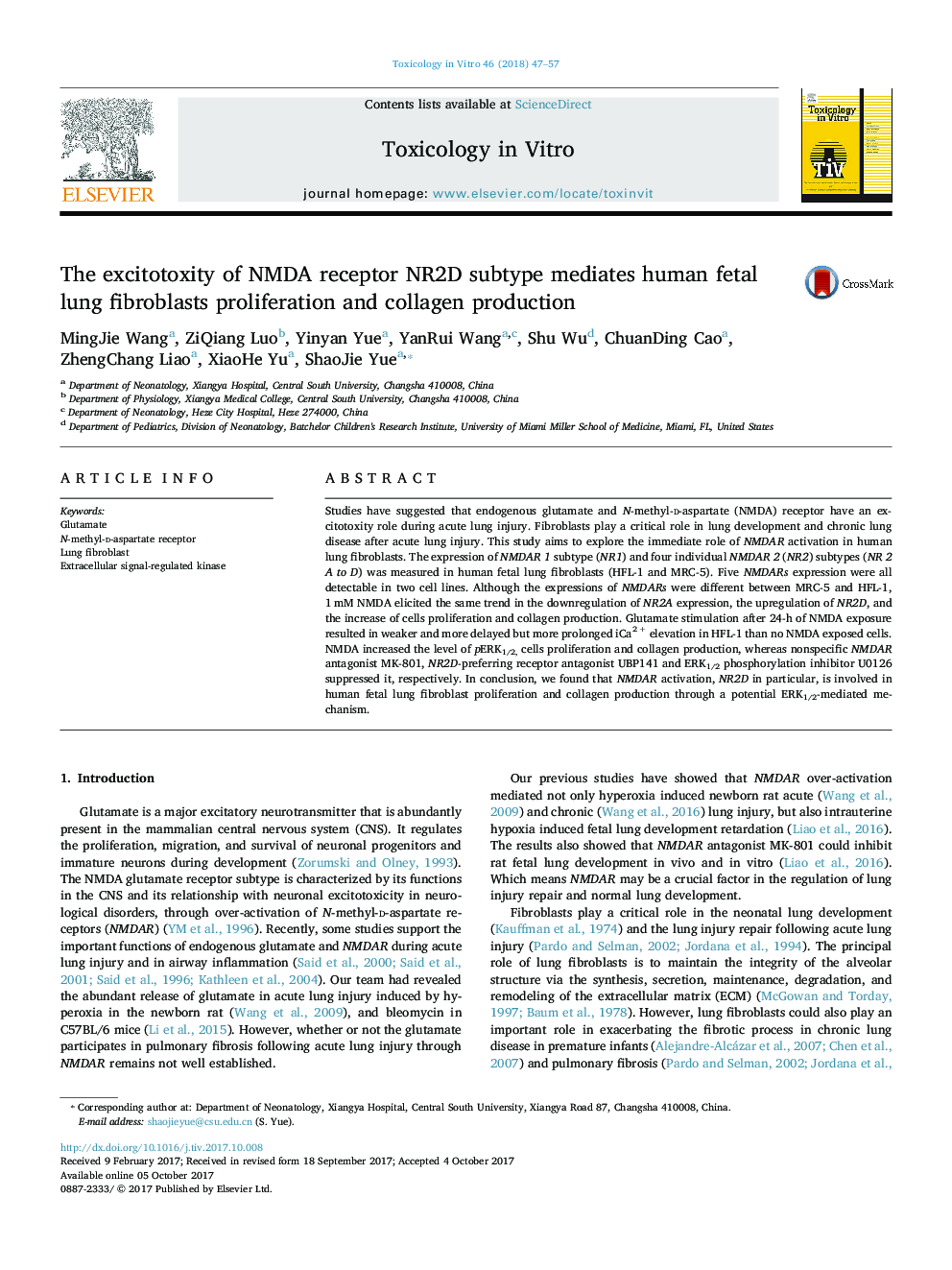| Article ID | Journal | Published Year | Pages | File Type |
|---|---|---|---|---|
| 5562482 | Toxicology in Vitro | 2018 | 11 Pages |
Abstract
Studies have suggested that endogenous glutamate and N-methyl-d-aspartate (NMDA) receptor have an excitotoxity role during acute lung injury. Fibroblasts play a critical role in lung development and chronic lung disease after acute lung injury. This study aims to explore the immediate role of NMDAR activation in human lung fibroblasts. The expression of NMDAR 1 subtype (NR1) and four individual NMDAR 2 (NR2) subtypes (NR 2 A to D) was measured in human fetal lung fibroblasts (HFL-1 and MRC-5). Five NMDARs expression were all detectable in two cell lines. Although the expressions of NMDARs were different between MRC-5 and HFL-1, 1Â mM NMDA elicited the same trend in the downregulation of NR2A expression, the upregulation of NR2D, and the increase of cells proliferation and collagen production. Glutamate stimulation after 24-h of NMDA exposure resulted in weaker and more delayed but more prolonged iCa2Â + elevation in HFL-1 than no NMDA exposed cells. NMDA increased the level of pERK1/2, cells proliferation and collagen production, whereas nonspecific NMDAR antagonist MK-801, NR2D-preferring receptor antagonist UBP141 and ERK1/2 phosphorylation inhibitor U0126 suppressed it, respectively. In conclusion, we found that NMDAR activation, NR2D in particular, is involved in human fetal lung fibroblast proliferation and collagen production through a potential ERK1/2-mediated mechanism.
Related Topics
Life Sciences
Environmental Science
Health, Toxicology and Mutagenesis
Authors
MingJie Wang, ZiQiang Luo, Yinyan Yue, YanRui Wang, Shu Wu, ChuanDing Cao, ZhengChang Liao, XiaoHe Yu, ShaoJie Yue,
